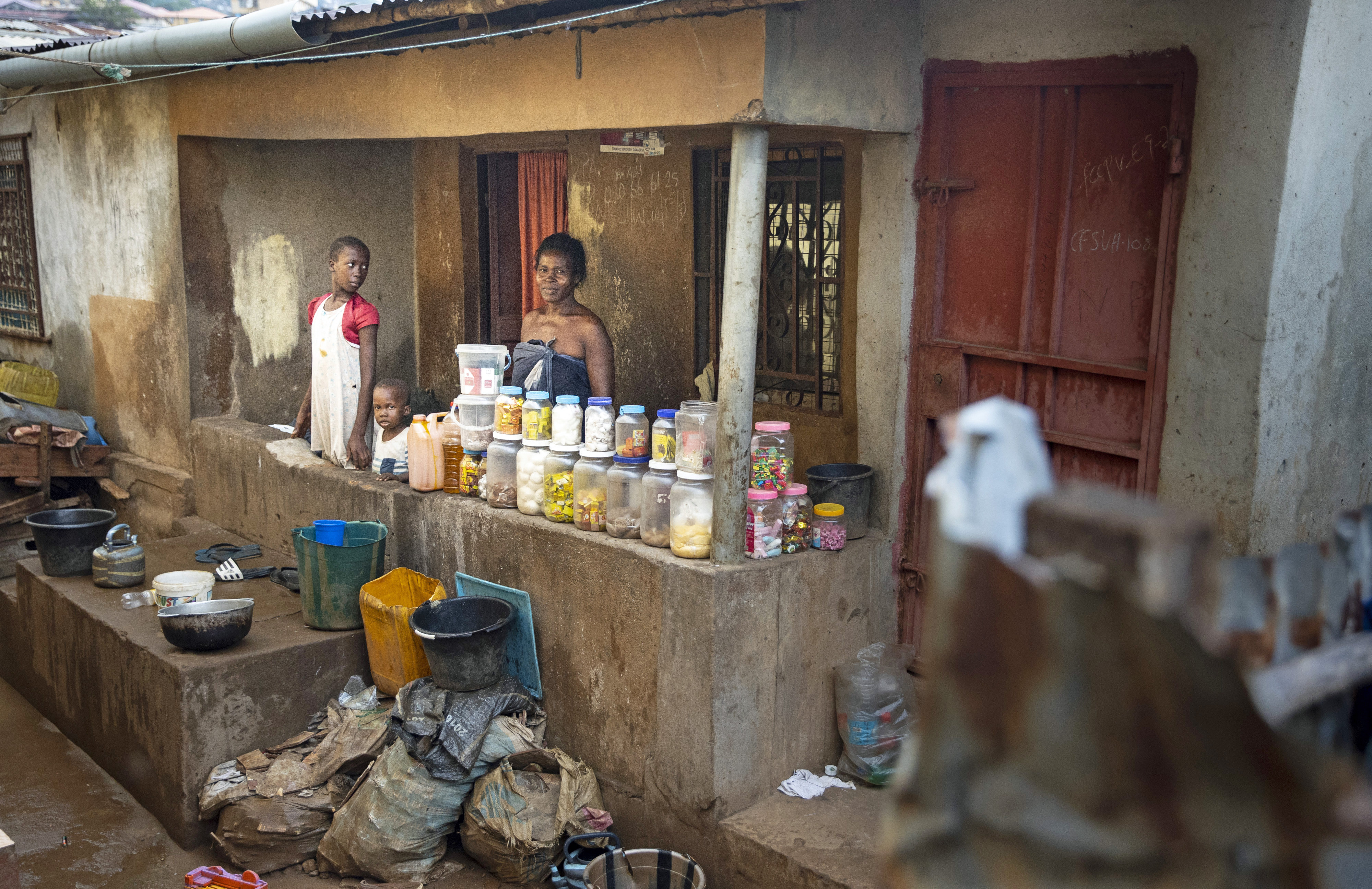Shopkeeper in the poor neighbourhood of Bomeh Village in Freetown, Sierra Leone
Copyright© Ute Grabowsky/photothek.net
Social situation A need for more education and employment
More than half of Sierra Leone’s population lives in poverty and is malnourished, and one fifth of its people are suffering from hunger. The average life expectancy is 60, and maternal and child mortality remain high. Half of the adult population is illiterate.
Current estimates suggest that around 70 per cent of the working-age population is unemployed, underemployed or unproductively employed, for example in agriculture, most of which is subsistence farming. Many people lost their jobs during the COVID-19 pandemic and are struggling to survive. Unemployed and frustrated young people in urban areas in particular, who often join violent gangs, may become a threat to the country’s political stability.
Alongside its raw materials, the government sees its young population as the country’s greatest asset. In order to be able to maximise their potential, the government has promised free primary and secondary education, and more investment in adult education, higher education and vocational training. So far, these promises have not been satisfactorily honoured, because of a lack of financial resources.
As at: 21/01/2026
